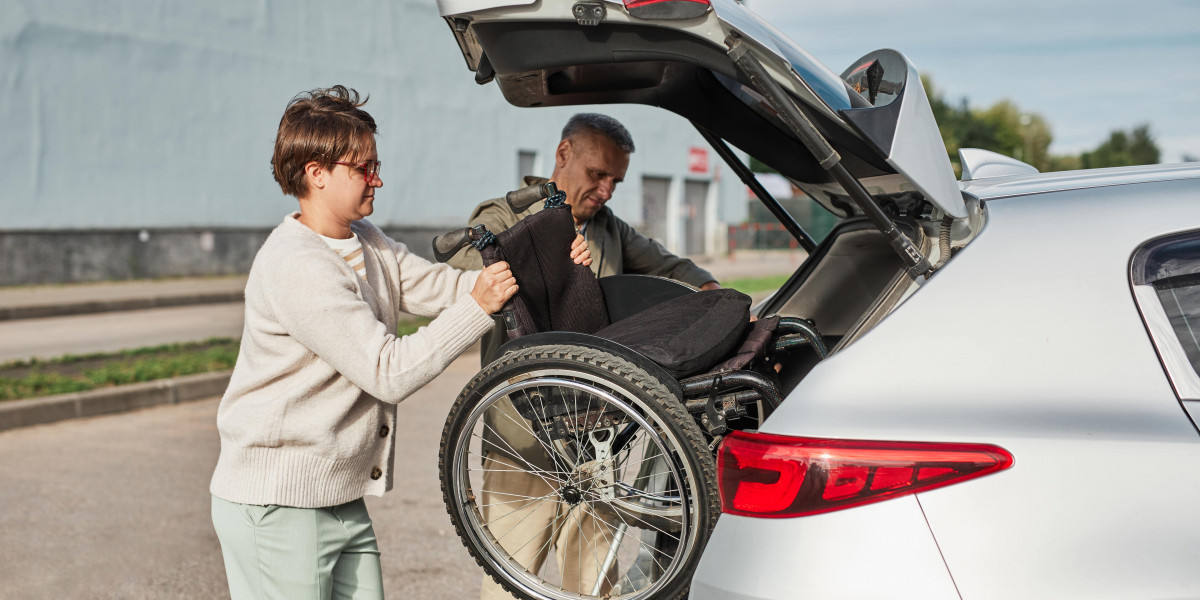Navigating the World of Mobility Scooters in the UK
Mobility scooters have ended up being an important tool for many in the United Kingdom, using a practical and dignified service for people with mobility issues. These scooters not just boost the quality of life for their users but likewise offer a sense of independence and freedom. This thorough guide aims to provide a summary of mobility scooters in the UK, including their benefits, types, acquiring factors to consider, and maintenance ideas.
Introduction to Mobility Scooters
A mobility scooter is a battery-powered car developed to assist people with strolling troubles or restricted mobility to move around more quickly. Unlike manual wheelchairs, which require considerable physical effort, mobility scooters are simple to operate and can be used both inside your home and outdoors. They are particularly useful for older adults and individuals with disabilities, enabling them to take a trip longer ranges and navigate different terrains with ease.
Advantages of Mobility Scooters
Independence and Freedom
- Mobility scooters empower users to travel separately, minimizing the requirement for support from others.
- They can be utilized for everyday activities such as shopping, visiting good friends, or going to social events.
Economical
- While there are initial expenses, mobility scooters can be an economical alternative to other mobility help, especially over time.
- Many models are offered for lease or lease, supplying flexibility for users with varying requirements.
Comfort and Safety
- Scooters are created with ergonomic seats and adjustable functions to ensure comfort throughout extended periods of use.
- Safety features such as lights, horns, and braking systems boost user self-confidence and security.
Social Inclusion
- By making it possible for people to participate in neighborhood activities, mobility scooters promote social addition and minimize feelings of isolation.
Health Benefits
- Regular use of a mobility scooter can help maintain physical health by encouraging users to stay active and engaged.
Kinds Of Mobility Scooters
Mobility scooters in the UK can be found in different types, each created to cater to different requirements and choices:
Class 2 Scooters (Pavement Scooters)
- Speed: Up to 4 mph
- Use: Designed for usage on pavements and within indoor spaces
- Advantages: Compact and lightweight, ideal for brief ranges and day-to-day errands
Class 3 Scooters (Road and Pavement Scooters)
- Speed: Up to 8 mph on roads and 4 mph on pavements
- Usage: Suitable for longer journeys and can be utilized on both roads and pavements
- Advantages: More robust and efficient in dealing with different surfaces, including rough surface areas and inclines
Off-Road Scooters
- Speed: Varies, however normally higher than Class 2 and Class 3 scooters
- Use: Designed for off-road use, consisting of parks, trails, and unequal surface areas
- Advantages: Enhanced resilience and traction, suitable for daring users
Travel Mobility Scooters
- Speed: Varies, however typically approximately 4 miles per hour
- Use: Portable and easy to disassemble for transport
- Benefits: Perfect for users who take a trip regularly and need a portable solution
Purchasing Considerations
When buying a mobility scooter, numerous elements need to be thought about to guarantee the best fit for the user's needs:
User's Physical Condition
- Weight Capacity: Ensure the scooter can support the user's weight.
- Height and Reach: Choose a design that is adjustable to fit the user's height and reach easily.
Meant Use
- Indoor/Outdoor: Determine if the scooter will be used primarily indoors, outdoors, or both.
- Surface: Consider the type of terrain the user will browse, consisting of any hills or rough surfaces.
Battery Life and Range
- Battery Type: Lithium-ion batteries are normally more efficient and longer-lasting than lead-acid batteries.
- Range: Check the scooter's range to ensure it meets the user's daily travel requirements.
Safety Features
- Brakes: Look for scooters with dependable braking systems.
- Lights and Horns: Essential for visibility and notifying others.
Service Warranty and Customer Support
- Guarantee: Ensure the scooter features a comprehensive warranty.
- Consumer Support: Choose a credible maker with good client service and assistance.
Maintenance and Safety Tips
Appropriate upkeep is vital to ensure the durability and safety of a mobility scooter:
Regular Battery Checks
- Charging: Always keep the battery credited prevent deep discharge.
- Cleaning: Keep the battery compartment clean and devoid of dirt and wetness.
Tire Maintenance
- Inflation: Regularly check and maintain appropriate tire pressure.
- Inspection: Inspect tires for wear and damage, replacing them as needed.
Tidy and Lubricate
- Cleaning: Wipe down the scooter regularly to keep it devoid of dirt and gunk.
- Lubrication: Lubricate moving parts to prevent rust and ensure smooth operation.
Security Checks
- Brakes: Test the brakes regularly to guarantee they are working correctly.
- Lights and Horns: Check that all security functions are functional.
Follow Manufacturer Guidelines
- Handbook: Refer to the user manual for particular upkeep directions.
- Service: Schedule routine service talk to a certified service technician.
Often Asked Questions (FAQs)
Can anybody use a mobility scooter?
- No, only individuals with a medical requirement or disability are eligible to use a mobility scooter on public roadways and pavements in the UK. Nevertheless, they can be used by anybody on private home.
Do I require a license to drive a mobility scooter?
- No, a license is not needed to use a Class 2 or Class 3 mobility scooter. Nevertheless, users must be over 14 years of ages and have an authentic need for the scooter due to a disability or medical condition.
How fast can a mobility scooter go?
- Class 2 scooters have a maximum speed of 4 miles per hour, while Class 3 scooters can reach up to 8 mph on roads and 4 miles per hour on pavements.
Can I take a mobility scooter on public transport?
- Some public transportation, such as trains and buses, might enable mobility scooters, but it depends on the specific service and the size of the scooter. It's best to contact the transportation service provider beforehand.
What is the life-span of a mobility scooter?
- With correct maintenance, a mobility scooter can last numerous years, generally in between 5 and 10 years.
Can I get monetary assistance to buy a mobility scooter?

- Yes, financial support might be readily available through the Disabled Facilities Grant (DFG), local authorities, or charitable companies. Additionally, some insurers might cover part of the cost.
Mobility scooters are a valuable aid for people with mobility concerns in the UK, providing a variety of benefits from increased independence to improved social participation. By thinking about the user's requirements, the intended usage, and the scooter's features, one can choose the right design to enhance their quality of life. Routine upkeep and adherence to safety standards are vital to ensure the scooter stays a dependable and safe mode of transportation. For those who qualify, financial assistance might be readily available to make the purchase more affordable. Whether for day-to-day use or periodic outings, a mobility scooter can substantially enhance the user's ability to browse the world with self-confidence and ease.
Additional Resources
- Mobility Aids UK: A detailed directory of mobility help and scooters.
- NHS Choices: Information on mobility aids and monetary help.
- Disability Living Allowance (DLA): Guidance on getting financial support for disability-related costs.
By exploring these resources and considering the points described in this guide, individuals can make an informed choice about buying and using a mobility scooter in the UK.








